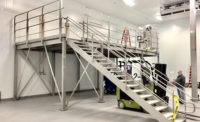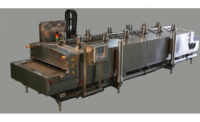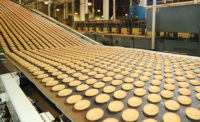The Baking Industry Forum, a special group aligned to the Bakery Equipment Manufacturers and Allieds organization (BEMA), is in place to tackle the issues of the baking industry in a collaborative forum where members from the OEM community, together with bakery manufacturing professionals, tackle key issues challenging the industry. The topic for this article, changeover efficiency, offers views from both an OEM and a baker.
In manufacturing, changeover is the process of converting a line or machine from running one product to another. During the switch, bakers are not producing and, therefore, this has a direct impact on their bottom line. From a vendor’s perspective, we are continuously improving the design of our equipment to be efficient with the changeover.
Changeover times depend on the machine or line’s complexity, and depend on several variables:
- Removing the previous product
- Required sanitation before running the next product
- New equipment that needs to be added, or modifying the setup of the tooling currently in place
- Starting the line back up
Equipment manufacturers work hard at improving the changeover on their systems to support their customers in key areas, such as:
- Ergonomics
- Increasing product flexibility
- Increasing profitability
- Reducing inventory costs
- Reducing waste
It’s very important for bakers to be able to easily perform changeovers from one product to another during the work day. Therefore, it is the responsibility of the equipment manufacturer to design their systems for fast and repeatable changeovers, while maintaining a safe environment for the operators. When there is a solid partnership between the baker and the OEM, successful changeover practices will be in place.
-Nick Magistrelli
Evolving consumer demands for nontraditional products and/or product lines are driving OEMs to innovate. When designing new equipment, OEMs and bakers must align their focus on the people, the product and the process.
Collaboration with the team members responsible for the sanitation, maintenance, food safety and operations of the equipment will deliver different perspectives, helping achieve maximum efficiency. The equipment design must allow for fast and repeatable changeovers and overall safety while delivering quality products and flexibility for nontraditional products.
The products running on the equipment will determine overall changeover efficiency. When running a traditional product on a line designed specifically for that product, higher efficiencies are obviously achieved. However, bakers are challenging OEMs to design flexible, upgradeable equipment, while maintaining overall efficiency. Therefore, it is imperative the OEMs have a thorough understanding of the baker’s processes.
The process to maintain and operate the equipment is critical to achieving changeover efficiencies. OEMs and bakers need to ensure written and practical training processes are developed to maximize the overall efficiency of the equipment. Personal protection equipment, standard operating procedures, changeover checklists, master cleaning schedules and preventative maintenance schedules must be included in this training.
Strong partnerships between OEMs and bakers will drive success through overall improved efficiencies and profitability.
-Mike Porter
BIF, BEMA’s Baking Industry Forum, provides the industry with a strong resource for ideas and expertise based on research and years of experience. Seven bakers and seven suppliers work together as the Baking Industry Forum. This committed group explores issues common to everyone in the baking industry, such as preparations for FSMA, the importance of training, how to hire veterans, safety and more. For more information, visit www.bema.org/bif.





